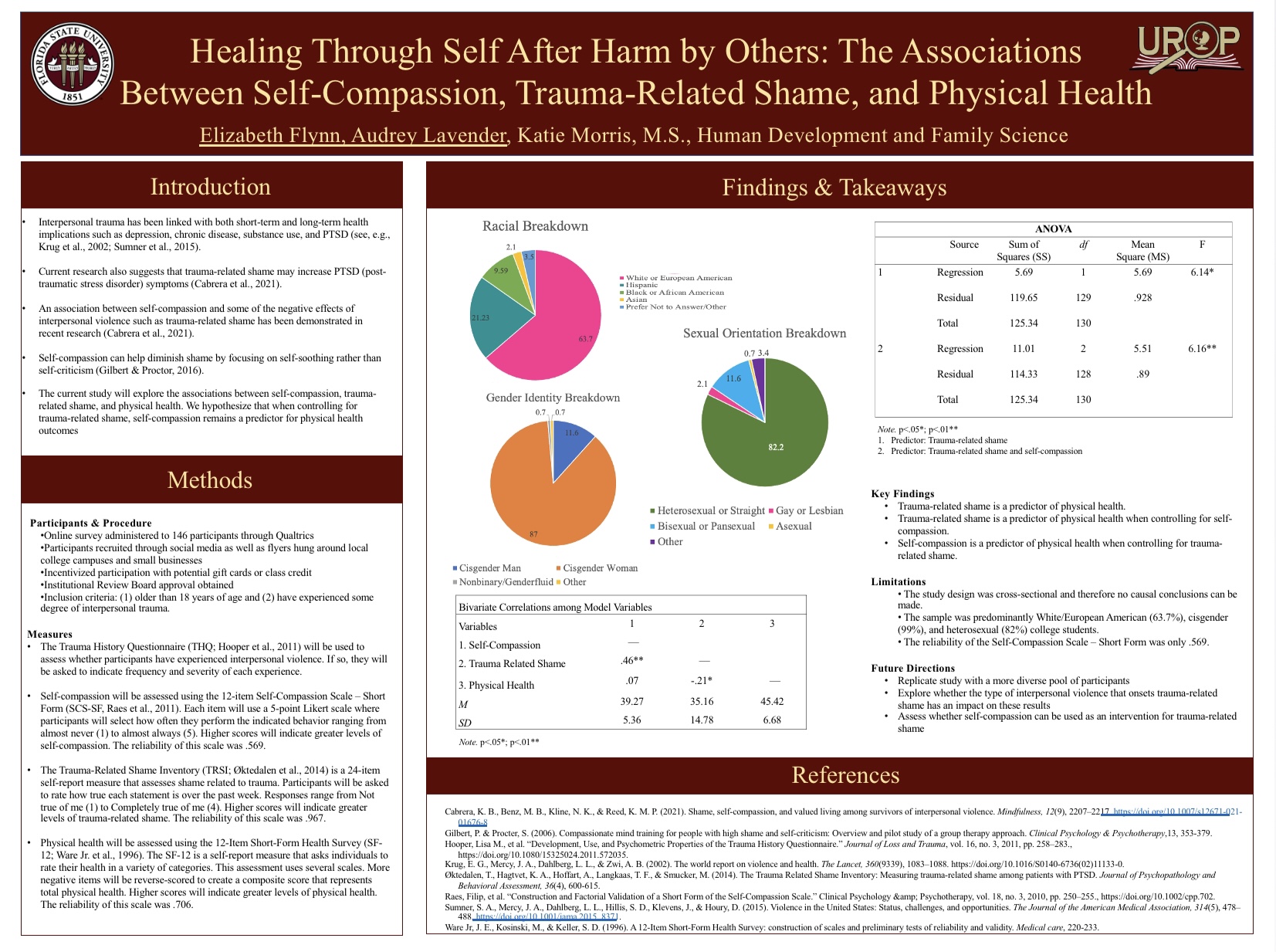Research Symposium
23rd annual Undergraduate Research Symposium, April 6, 2023
Audrey Lavender Poster Session 1: 11:00 am - 12:00 pm/ Poster #378

BIO
I am from originally from Clermont, FL. My research interests involve different therapy techniques, mental health, mental disorders, learning disabilities, and peoples’ lives after traumatic events. These research topics closely align with my career aspirations because I would like to attend Psychology graduate school and become a Licensed Clinical Psychologist.
Healing Through Self After Harm by Others: The Associations Between Self-Compassion, Trauma-Related Shame, and Physical Health
Authors: Audrey Lavender, Katie MorrisStudent Major: Psychology
Mentor: Katie Morris
Mentor's Department: Human Development and Family Science Mentor's College: Health and Human Sciences Co-Presenters: Elizabeth Flynn
Abstract
In this study, researchers observed the impact of trauma-related symptoms on physical health and identified if increased levels of self-compassion are associated with increased physical health after experiencing interpersonal violence. Current studies suggest that self-compassion reduces interpersonal violence's adverse physical health effects, specifically trauma-related shame. This research team predicted that less trauma-related shame (reduced trauma-related symptoms) would negatively correlate with better physical health, and more self-compassion would positively correlate with better physical health. They also predicted that incorporating self-compassion into this model while controlling for trauma-related shame would yield significant results. An online survey via Qualtrics was given to 179 participants to test this. The survey assessed their levels of self-compassion, trauma-related shame, physical health, and experience of interpersonal violence. After data collection, researchers ran a hierarchical linear regression to determine if self-compassion held any predictive power for physical health while controlling for trauma-related shame. Researchers assessed trauma-related shame as a predictor for physical health first, and then added self-compassion in a second block. Correlations were evaluated to avoid multicollinearity. The results indicated that trauma-related shame predicted physical health, including when controlling for self-compassion, and self-compassion predicted physical health when controlling for trauma-related shame.
Keywords: Interpersonal Trauma, Self-Compassion, Trauma-Related Shame, Physical Health


